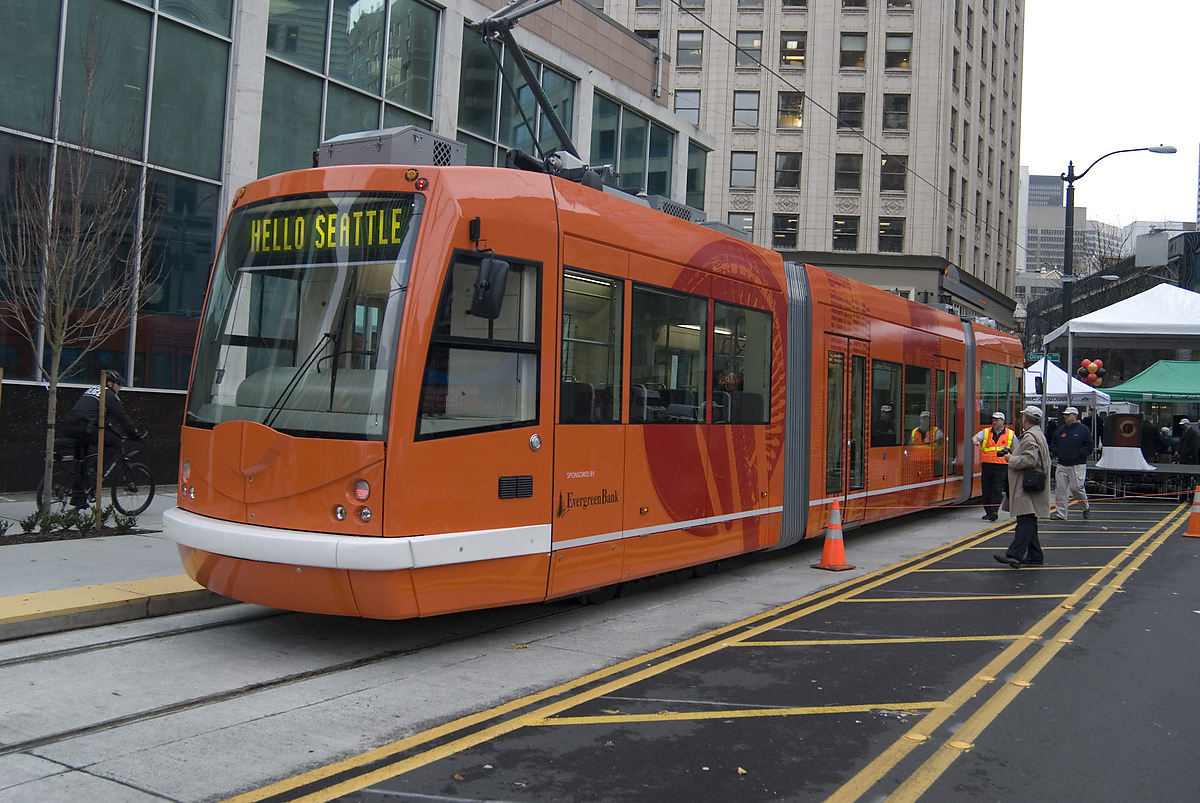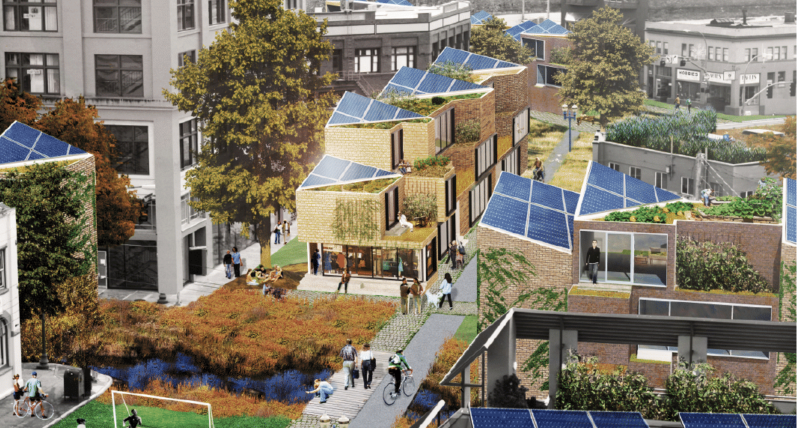The Resilient Cities, Healthy Communities program worked at the intersection of human and environmental well-being. Its purpose was to ensure the Seattle, Portland, and Vancouver, BC metro regions are equitable, resilient, healthy, and beautiful places to live. It promoted cities and neighborhoods where human-powered transportation is commonplace; public transit is fast and reliable; urban green space is abundant and accessible to all; housing is green and affordable; infrastructure is resilient and resource efficient; healthy food is available; and the sense of community is strong. Equity, inclusion, and diversity were guiding principles for the program.
With every effort to advance these goals, the Resilient Cities, Healthy Communities program sought to learn from nature. Today, no cities are built around ecological principles or powered by nature’s knowledge, but some practitioners are starting to observe nature, learn how organisms function, and apply these lessons to solve human challenges.
Sustainable Infrastructure
The Foundation sought to build a movement of practitioners and underwrote initiatives to create a future where human systems are resilient to nature’s uncertainties, such as climate change, disease, drought, and overall diminishing resources. The program focused on infrastructure design that optimized efficiencies among land use, transportation, energy, water, and waste systems; operates at a cost effective scale; enhances natural systems; reduces carbon emissions; and stores carbon. It advanced innovative, decentralized, green infrastructure alternatives to the highly engineered and energy intensive grey infrastructure that is so common today. The program sought to transform urban transportation systems to create transit-efficient, walkable, bikable streets that are safe and enjoyable to use. It advanced policies and practices that make transit reliable and faster to use than cars.
- Advanced decentralized, biomimetic, and environmentally resilient systems that generate multiple benefits.
- Prioritized the health and well-being of humans and nature by promoting walking, biking, and public transportation. Promoted systems and cultures in which physical activity is viewed as a benefit.
- Encouraged green infrastructure design that optimizes efficiencies among land use, transportation, energy, water, and waste systems, operates at scale, enhances natural systems, reduces CO2 emissions, and stores carbon.
Density Done Right
The Resilient Cities, Healthy Communities program supported compact cities that are human scaled, affordable, and environmentally sound. It enabled cities to grow while increasing affordability and neighborhood green space. It promoted municipal policies that preserve trees and advanced green infrastructure solutions such as rain gardens and green roofs. It drove the development and adoption of policies and programs that prevented displacement of local residents as cities grow. And, the program advanced affordable, ecologically sound housing alternatives.
- Piloted innovative solutions to tough environmental and social problems.
- Used neighborhoods as a testing ground for new policies and initiatives.
- Ensured access to parks and natural areas for all urban residents.
- Integrated the built and natural environments and create models for nature to coexist in highly developed urban areas.
- Guaranteed that growth doesn’t exacerbate social inequities and that environmental benefits are equitably distributed throughout cities.
- Engaged people from historically underrepresented groups to develop and advocate for relevant solutions to environmental and social issues facing their communities.
Food
The Resilient Cities, Healthy Communities program prioritized initiatives that sought to create resilient locally sourced urban food systems that could meet a growing percentage of the region’s food demand. The program focused on initiatives located in urban areas and catalytic efforts that have the potential for replication rather than one-off projects. Inherently, a sustainable and nutritious food system drastically increases the amount of fruit and vegetables consumed at the expense of meat and animal products.
- Expanded new methods of urban farming that produce healthy crops without high-energy, fertilizer or pesticide use.
- Cultivated scalable initiatives that mimic nature to create efficient and abundant food operations.
- Promoted the increased use of fresh and healthy food instead of the current over-reliance on “fast” and processed foods.

